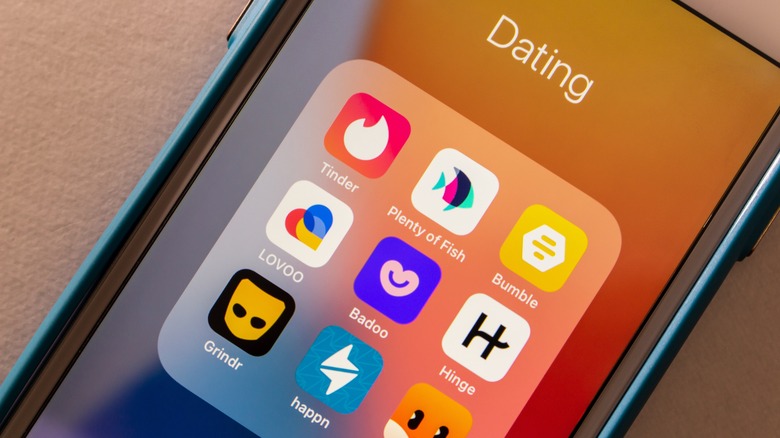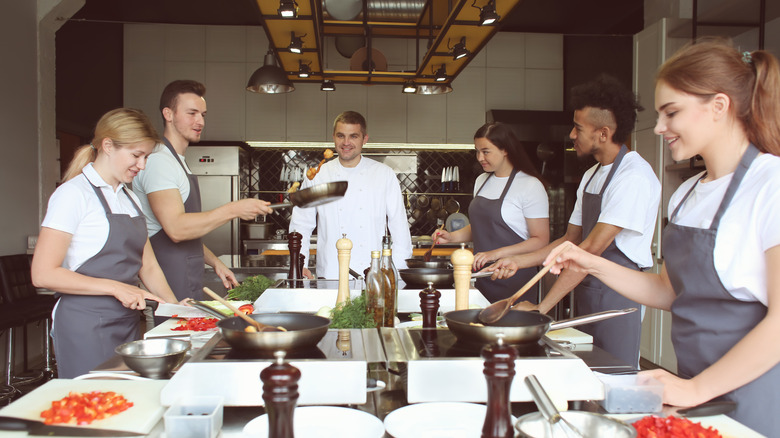A Travel Safety Expert Tells Us If Dating Apps Like Tinder Are Dangerous To Use On Vacation
As more travelers incorporate smartphones and travel apps into every aspect of their overseas trip, dating apps like Tinder are becoming popular tools for meeting new people while exploring the world. Joanne McNellis, founder and CEO of Travel Safety Solutions, offers an exclusive expert perspective on the risks and rewards of using these platforms abroad. With over two decades of experience in the travel industry, McNellis provides practical advice for those looking to swipe safely while traveling.
Dating apps can transform travel experiences by connecting users with potential platonic or romantic partners who can offer local insights and companionship — a thrill for anyone single, solo, and on vacation. However, McNellis warns, "Dating apps carry some risk, as the initial engagement is with a stranger. Adding the component of being in another country alone increases that risk." In 2023, eight suspicious deaths of American travelers to Colombia were linked to dating apps (per U.S. Embassy Bogotá). However, these are not outliers — fraud, sexual assault, and other crimes carried out via dating apps are not uncommon.
McNellis explains that navigating a foreign language and unfamiliar area without the local support system of family and friends heightens these challenges even more. Moreover, different countries have different rules regarding public displays of affection and LGBTQ+ relationships — these are important to be aware of. When traveling to an LGBTQ-unfriendly destination, Tinder will notify you and give you the option to make your profile private. The thrill of meeting someone new must be balanced with cautious and responsible behavior.
Safety tips for using dating apps while traveling
Joanne McNellis warns against sharing any compromising personal details on your Tinder profile, like your hotel location or travel dates. "Creat[ing] a 'safe profile' that does not divulge a lot of personal information or display a lot of personal information is paramount," she states. This is something that Tinder also advises in its Community Guidelines. Keeping communication within the app as long as possible is another crucial safety step because once the conversation moves to texting or social media, the built-in safety features of the dating app are bypassed. McNellis also asserts that "insisting on a video call to plan the meet-up is non-negotiable," as it helps confirm identity and assess your compatibility. If the other person has a problem with that, swipe left.
When it comes to the actual meeting, McNellis suggests a public location. Busy cafés, museums, and restaurants are ideal for ensuring a safe environment. Meetings should ideally take place during the day and always in well-trodden public spaces. If your date proposes to meet just you and them on a romantic secret hiking trail in the forest, please decline (unless you want the lead role in a horror movie). McNellis recommends sharing your location with a friend or family member as another precaution because it guarantees that someone always knows where you are and whom you're with. "Let them know the name of the person, the app you met them on, photo, and any other identifying information," she says.
Alternatives to dating apps for meeting people abroad
For solo travelers seeking safer alternatives to meet people, Joanne McNellis suggests participating in a walking tour or taking a class. These are excellent ways to meet fellow travelers and locals in a structured, safe environment (that's no less romantic or sexy). "If you are in Italy, take a cooking class; in Ireland, you can shear sheep," recommends McNellis. These activities offer the opportunity to learn something different and forge meaningful connections. You can also try the online community called Hangouts, though it isn't specially formulated for romantic link-ups. Attending sports events or dining at the bar (versus isolated tables) in restaurants also offers secure and lively opportunities to interact with many people.
McNellis stresses the importance of always projecting an image of being part of a group, even if you're traveling solo. "Never let anyone know you are alone," she advises. This white lie can make you appear less vulnerable to someone with the wrong intentions. Her final piece of advice reflects a deep understanding of the traveler's psyche: "It is so easy to let your guard down, especially after you have settled into your destination after a few days, or you have enjoyed a few drinks. It happens to all of us at one time or another." McNellis and Travel Safety Solutions' goal is not to discourage friendly travel but to equip travelers with the necessary knowledge and tools to stay safe. The key is always to prioritize your safety — before you swipe right.


